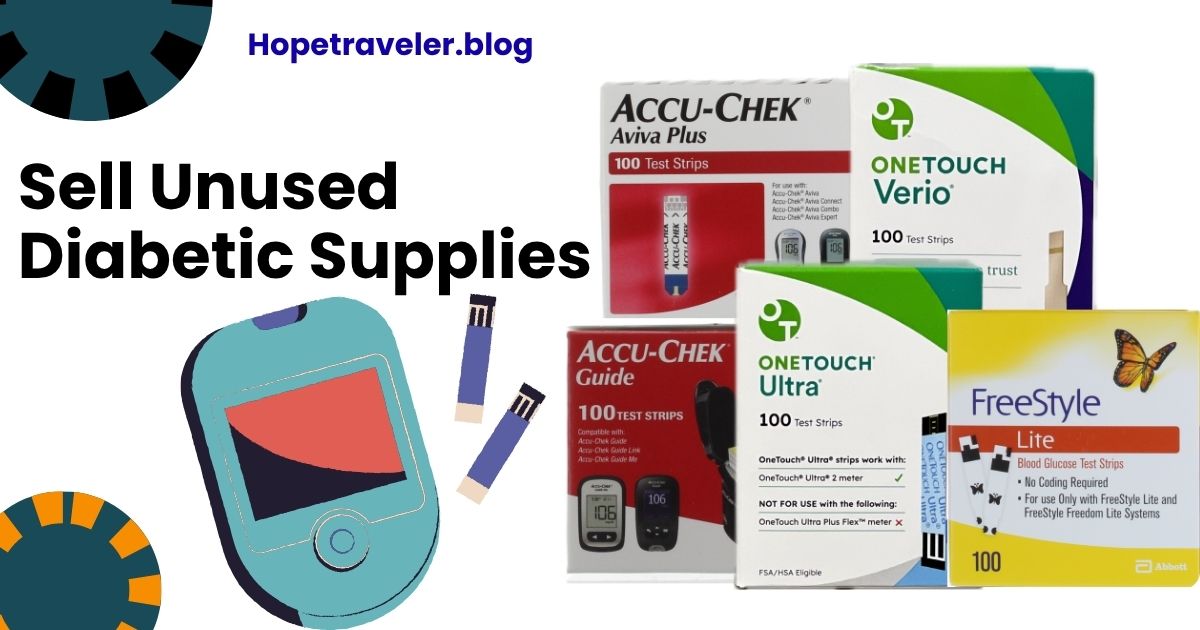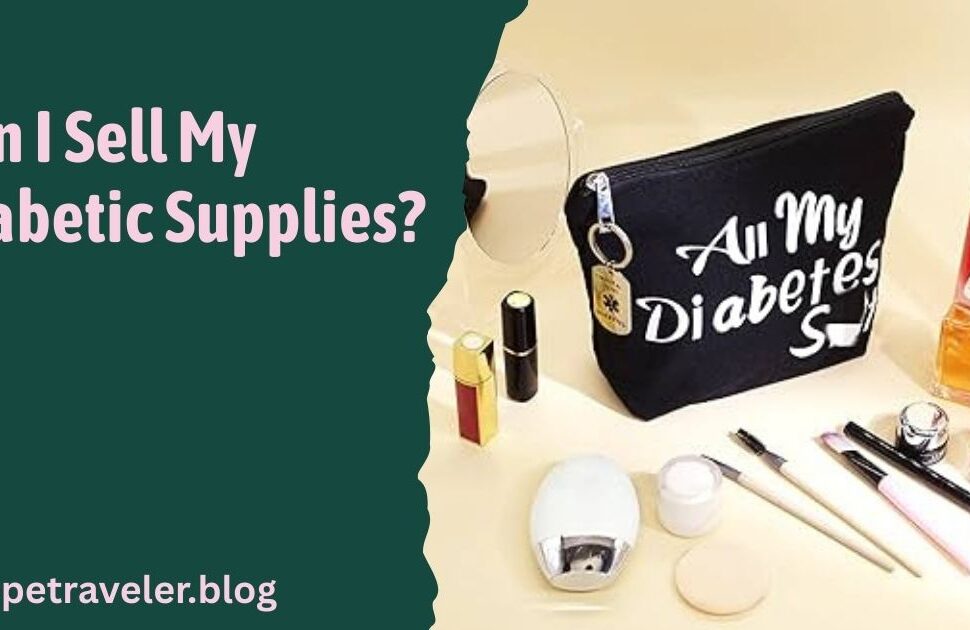Millions of people worldwide are affected by diabetes, a condition that requires regular monitoring and medical supplies to manage blood glucose levels effectively. For various reasons—such as a change in prescription, the death of a loved one, or switching to an insulin pump—people may end up with extra diabetic supplies that go unused. Rather than letting these items expire or take up space, one increasingly popular and ethical option is to sell unused diabetic supplies. This article will guide you through the legal, practical, and ethical considerations of doing so.
Understanding Diabetic Supplies
Diabetic supplies include items essential for blood glucose monitoring and insulin administration. These typically include:
- Blood glucose meters
- Test strips
- Lancets
- Continuous Glucose Monitors (CGMs)
- Insulin pens and vials
- Syringes and pen needles
You can learn more about these items in the broader context of diabetes management.
Some of these items are relatively expensive, and having extra supplies could be a lifeline for someone who struggles to afford them—especially in countries where insurance coverage is limited or unavailable.
Why Do People Have Extra Supplies?
People can accumulate unused diabetic supplies for many reasons, including:
- Change in treatment or prescription
- Death of a diabetic family member
- Switching to insulin pumps or CGMs
- Receiving automatic refills that are no longer needed
- Loss of insurance or change in healthcare provider
Whatever the cause, these excess supplies often sit unused and eventually expire—wasting resources and money.
Is It Legal to Sell Unused Diabetic Supplies?
Legality depends on the item, the brand, and the region you are in. For example:
- Test strips: Legal to resell in many U.S. states if they are not labeled “Medicare/Medicaid only.”
- Insulin and prescription medications: Usually illegal to resell without a pharmacy license.
- CGMs and meters: Depending on the brand and packaging, they might be legal to sell.
Always check federal and state laws in your area. In the U.S., the FDA regulates medical devices, and some items may fall under these restrictions. Selling prescription medications or items that require a prescription could be considered a criminal offense.
Who Buys Unused Diabetic Supplies?
A variety of platforms and individuals may be interested in buying your extra diabetic supplies:
1. Buyback Companies
Several companies specialize in buying unused diabetic supplies from individuals and reselling them at lower prices. Examples include:
- TestStripSearch
- Diabetic Exchange USA
- SellYourStripsForMore
- QuickCash4TestStrips
These companies often provide prepaid shipping and pay via check, PayPal, or direct deposit.
2. Local Listings
You can list items on platforms like Craigslist or Facebook Marketplace. However, these come with risks related to fraud, scams, and legality.
3. Charities and Nonprofits
If you’re not comfortable selling for profit, consider donating. Organizations like:
- Insulin for Life
- CR3 Diabetes Association
- SafeNetRx
…accept donations and distribute them to those in need, including low-income individuals and people in developing countries.
4. Pharmacies or Clinics
Some local clinics or pharmacies may accept donations directly, especially in underserved areas.
Requirements for Selling
To ensure your supplies are eligible for sale or donation, make sure they meet the following conditions:
- Unopened and sealed: Any tampering will disqualify the item.
- Not expired: Most buyers require at least 6–12 months before expiration.
- Good condition: No crushed boxes, water damage, or broken seals.
- Non-government issued: Medicare or Medicaid-labeled items often cannot be resold.
Always verify with the buyer regarding what they accept.
Ethical Considerations
While selling unused supplies can be profitable, it’s also important to remain ethical. Avoid:
- Profiting off items that were covered fully by government programs
- Selling supplies that may have degraded due to improper storage
- Misrepresenting the condition or expiration date of products
If in doubt, donating may be a better option. For those motivated by social impact, contributing to a diabetes nonprofit can directly help those without access to vital health resources.
Tips for Selling Safely
If you decide to sell, keep the following safety tips in mind:
- Do your research: Not all buyback companies are legitimate. Check reviews and Better Business Bureau ratings.
- Document everything: Keep records of transactions, shipping, and communication.
- Avoid meeting strangers: If using local listings, meet in public places.
- Use secure payment methods: Avoid cash or money orders if possible.
Environmental Impact
Discarded medical supplies can have a major environmental footprint. Properly recycling or repurposing these supplies can reduce waste and provide vital resources to people in need. Selling or donating unused diabetic supplies keeps them out of landfills and helps close the access gap for underprivileged patients.
Final Thoughts
Whether you’re looking to declutter your cabinet, help someone in need, or recoup some expenses, learning how to sell unused diabetic supplies is a responsible and rewarding action. Always act within the boundaries of the law, and consider ethical alternatives such as donations when appropriate. With a growing market and increasing awareness of healthcare access inequality, your unused test strips or meters could make a difference in someone’s life.




